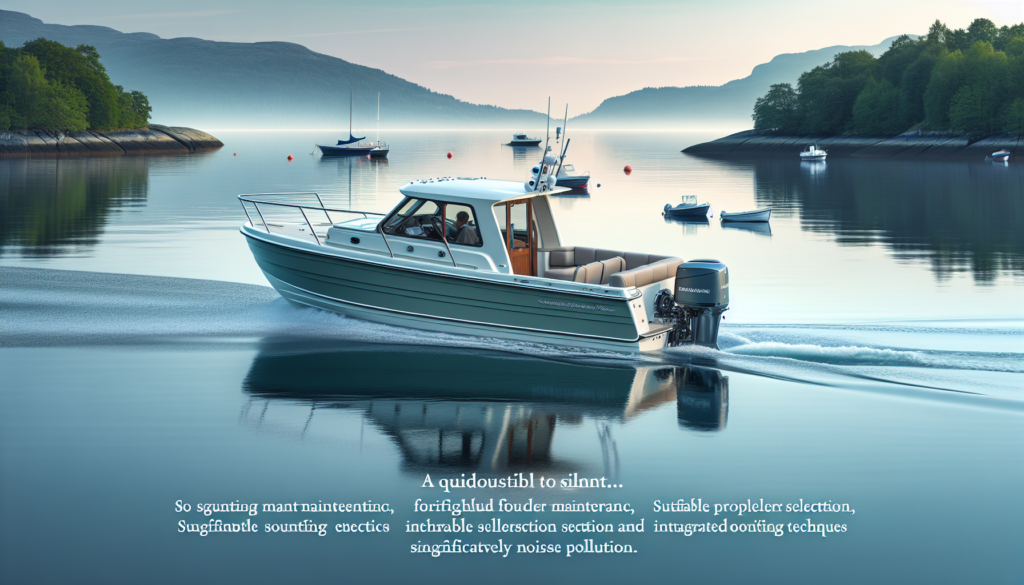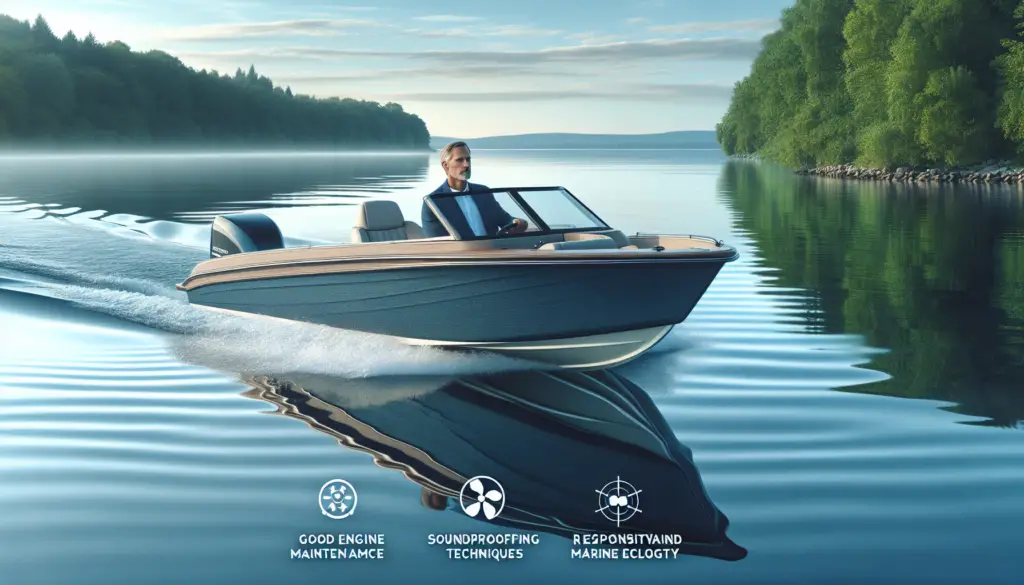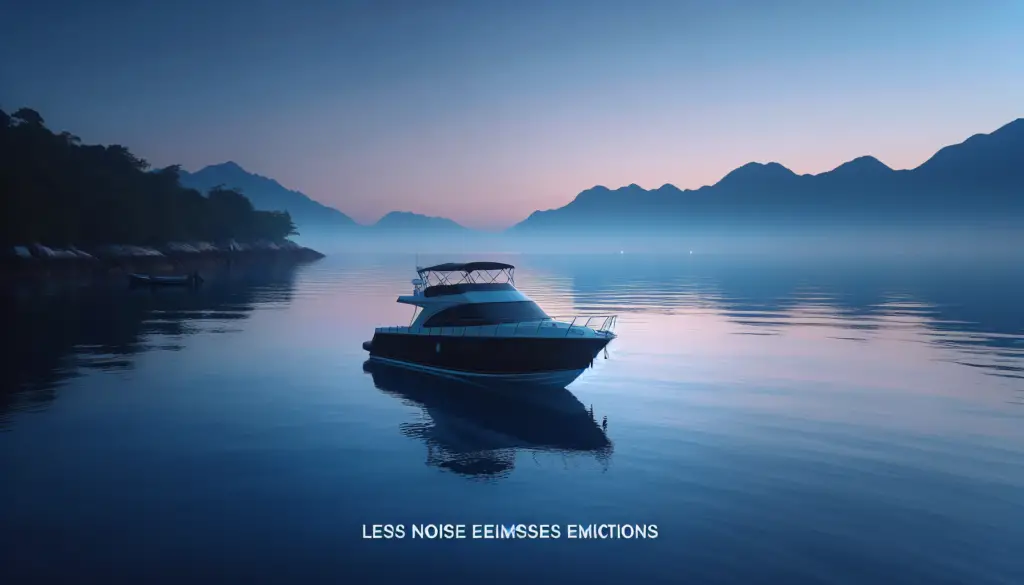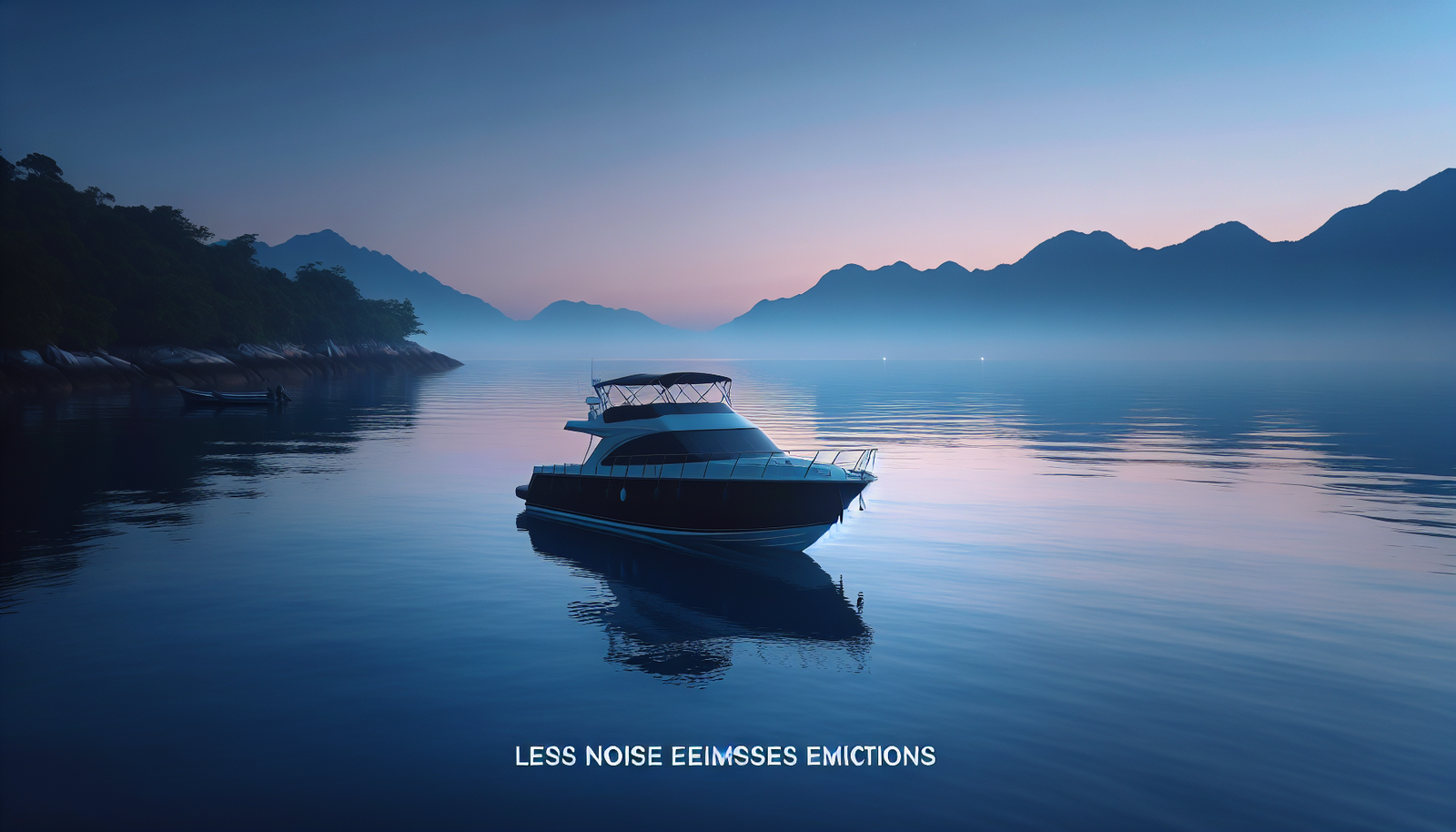Are you a boat enthusiast who cherishes the tranquility of the sea? Or perhaps a lakeside resident disturbed by the bleating of boat engines? You’ll appreciate this piece on tips for reducing noise pollution from boat engines. Armed with these strategies, you can transform your boating experience, striking the perfect balance between your love for sailing and the need for a serene environment. Be part of the solution to noise pollution, creating harmony between nature and modern mechanisms.

Understanding Noise Pollution
Before we dive into the nitty-gritty details of reducing noise pollution from boat engines, let’s start with the basics.
Definition of Noise Pollution
Noise pollution is any unwanted or undesirable sound that disrupts the environment and the living organisms within it. This type of pollution is often neglected, but it plays a significant role in affecting our quality of life and overall ecosystem.
Sources of Noise Pollution
Noise pollution is not just limited to loud music or honking horns. It can come from a variety of sources such as factories, construction sites, busy roads, airports, and even marine vessels like boats and ships.
Effects of Noise Pollution on Humans and Wildlife
Continuous exposure to noise pollution can lead to a range of health issues in humans such as sleep disturbance, stress, hearing loss, and cardiovascular disorders. Wildlife is not exempt from the adverse effects of noise pollution. It can interrupt their communication, mating rituals, and hunting strategies, fundamentally disrupting their survival.
Noise Pollution from Boat Engines
Boats and ships, while instrumental in transportation, recreation, and fishing activities, are significant contributors to underwater noise pollution.
Importance of Reducing noise from Boat Engines
Reducing noise from boat engines should be a top priority because incessant noise can disturb the marine ecosystem. Moreover, it enhances the boating experience, ensuring a quiet and peaceful ride for you and your passengers.
How Boat Engines Contribute to Noise Pollution
Boat engines, particularly older and poorly maintained ones, emit steady noise due to their constant ignition and exhaust gases’ release. The noise doesn’t just stay confined to the boat, it travels underwater, affecting the marine organisms nearby.
Impact of Boat Noise Pollution on Marine Life
boat noise pollution proves detrimental for marine life. The underwater world is extremely sensitive to sound, and the incessant noise from boat engines can disrupt marine animals’ behavior, migration, and mating patterns.

Identifying Types of Boat Engines
Understanding the types of boat engines is crucial because not every engine contributes equally to noise pollution.
Inboard Engines
Inboard engines are located inside the boat’s hull and are generally louder as the noise reverberates within the confined space.
Outboard Engines
Outboard engines are found outside the boat’s hull and, in general, produce less noise due to being submerged in water partially.
Stern Drive Engines
Also known as inboard/outboard engines, they emit noise similar to inboard engines as they are located within the hull.
Jet Engines
Jet engines produce high noise levels due to the jet of water that propels the watercraft.
Regular Maintenance of Boat Engines
A well-maintained engine doesn’t just perform better; it’s also less noisy.
Frequency of Boat Engine Service
You should ideally service your boat engine once every season or after every 100 hours of operation to ensure it stays in peak condition.
Maintenance Checks to Reduce Noise
These checks include but are not limited to ensuring the exhaust system is clean, tightening loose parts, replacing worn belts, and changing the oil regularly.
Importance of Regular Engine Service
Regular maintenance doesn’t just reduce engine noise but also increases the engine’s lifespan and efficiency. It also helps in spotting potential problems before they turn into expensive repairs.

Replacing Old Engines
Sometimes, despite regular maintenance, boat engines can become inherently noisy due to age.
When to Consider Replacing a Boat Engine
If your boat engine is more than ten years old or requires frequent repairs, it’s time to consider replacing it.
Choosing the Right New Boat Engine
Choosing a new boat engine involves considering factors such as the type of boat, the boat’s weight, and the engine’s noise level, among others.
How New Engines Can Reduce Noise Pollution
Newer engines are designed with improved technology and materials which make them less noisy and more efficient. They offer excellent sound insulation and vibration damping.
Choosing Lower Noise Boat Designs
The boat’s design is a crucial element in determining its noise levels.
Factors that Influence Boat Noise
Factors like the boat’s hull shape, the material used in construction, and the boat’s layout contribute to its noise levels.
Design Aspects that Reduce Boat Noise
A well-insulated engine compartment, a less resonant hull material, and strategically placed furnishings can significantly reduce a boat’s noise levels.
Comparing Different Boat Designs
Different boats produce different levels of noise. When buying a boat, consider the noise levels as one of the determining factors.

Properly Muffling Engine Noise
Another effective way to reduce noise is to use mufflers.
Different Strategies for Muffling Boat Engine Noise
There are various types of mufflers, such as waterlock mufflers, blowby mufflers, and in-line mufflers, which reduce boat noise by changing the exhaust noise’s path.
Choosing the Right Muffler for Your Boat
Choosing the right muffler depends on your boat’s engine type and size. Ideally, opt for one that best contains and channels the exhaust noise.
Installation and Maintenance of Boat Mufflers
Proper installation and maintenance of mufflers are critical to their performance. It’s always wise to get a professional to install and periodically check your boat’s muffler.
Importance of Boat Speed Control
Higher boat speeds often mean higher noise levels.
How Boat Speed Increases Noise Pollution
A higher speed requires the engine to work harder, which, in turn, generates more noise.
Best Practices for Boat Speed Control
To reduce boat noise, consider operating your boat at slower speeds, especially when you are close to shore or in a sensitive marine area.
Impact of Speed Control on Noise Levels
Controlling your boat’s speed has a significant impact on reducing noise levels, improving your boating experience, and ensuring the tranquility of marine life.
The Role of Anti-Vibration Solutions
Vibrations significantly add to boat noise.
Anti-Vibration Mountings
Anti-vibration mounts, made from materials like rubber, help isolate the vibrations generated by the boat engine, significantly reducing the noise.
Isolation Pads
These pads work by absorbing and dampening vibrations, further reducing noise levels.
How Anti-Vibration Solutions Reduce Boat Noise
Damping and absorbing vibrations can drastically reduce boat noise, making your boat a more comfortable and quieter place and reducing the underwater noise pollution.
Legislation and Policies on Boat Noise Pollution
Policies and regulations exist to combat noise pollution from boats and preserve marine life.
Existing Regulations on Boat Noise
Several localities have regulations in place to limit boat noise pollution, but these vary widely depending on the area.
The Role of Government in Reducing Boat Noise Pollution
Governments can play a crucial role in minimizing boat noise pollution through effective policies, strict regulations, and public awareness programs.
Responsibility of Boat Owners and Users
As responsible boat owners and operators, it becomes our duty to follow these regulations stringently and take proactive steps to minimize noise pollution from our vessels.
In conclusion, while boats might be a source of joy and convenience for many, it’s essential not to overlook the noise pollution they can cause. By understanding the issue and taking proactive steps, we can ensure that our boating activities don’t disrupt our precious marine ecosystems.

